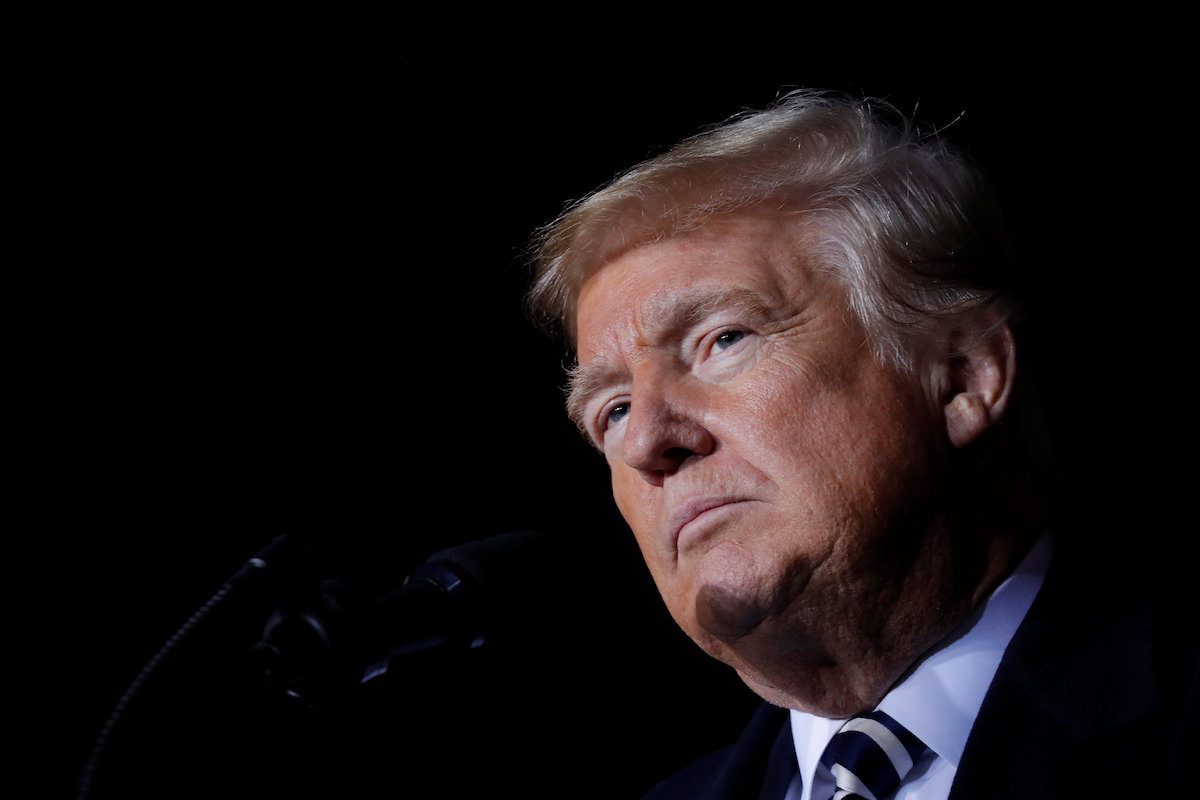Geopolitics, High Bids, and U.S. Pressure Cloud COSCO’s Global Port Ambitions
COSCO Shipping Ports is facing "challenges" with its international investments amid pressures from the U.S. trade war, its managing director said in Hong Kong on Thursday.

U.S. President Donald Trump holds a campaign rally at the Columbia Regional Airport in Columbia, Missouri, U.S., November 1, 2018. REUTERS/Carlos Barria
By Jenny Leonard, Saleha Mohsin and Jennifer Jacobs (Bloomberg) — President Donald Trump wants to reach an agreement on trade with Chinese President Xi Jinping at the Group of 20 nations summit in Argentina later this month and has asked key U.S. officials to begin drafting potential terms, according to four people familiar with the matter.
The push for a possible deal with China was prompted by the president’s telephone call with Xi on Thursday, the people said, requesting anonymity to discuss internal deliberations. Afterward, Trump described the conversation as “long and very good” and said in a tweet that their discussions on trade were “moving along nicely.”
Trump asked key cabinet secretaries to have their staff draw up a potential deal to stop an escalating trade conflict, the people said, adding that multiple agencies are involved in drafting the plan. It was unclear if Trump was easing up on U.S. demands that China has resisted, and reaching any accord still faces significant hurdles.
One person said a key sticking point in any potential deal is intellectual property theft, where the Trump administration has sought to take a hard line.
On Thursday, the U.S. charged a Chinese state-owned company with conspiring to steal trade secrets from U.S. chipmaker Micron Technology Inc., part of a Justice Department crackdown against China in cases of suspected economic espionage.
News of constructive talks between Trump and Xi prompted stocks to surge in Hong Kong and China, while the offshore yuan jumped as much as 0.5 percent for the biggest two-day gain since August. The Hang Seng Index rose 4.2 percent, the biggest gain since 2011, and the Shanghai Composite Index climbed 2.7 percent, posting a fourth day of gains for its longest winning streak since February.
U.S.-China talks have made little progress since May, when Trump put a stop to a deal that would see China buy more energy and agricultural goods to narrow the trade deficit. In Beijing Trump’s move was seen as an insult to Xi, who sent a personal emissary to Washington for the negotiations, and cemented a view that Trump’s real goal is to thwart China’s rise.
The telephone conversation on Thursday was Trump and Xi’s first publicly disclosed call in six months. Both sides reported that they had constructive discussions on North Korea and trade, with Chinese state media saying that Trump supported “frequent, direct communication” between the presidents and “joint efforts to prepare for” the planned meeting on the sidelines of the Group of 20 summit, which is scheduled to take place from Nov. 30 to Dec. 1.
“Those discussions are moving along nicely,” Trump wrote on Twitter Thursday. At a campaign rally in Columbia, Missouri, on Thursday night he said, “they want to make a deal.”
“He wants to do it,” Trump said of Xi. “They all want to do it.”
Trump risks political blow-back if any deal is regarded as a concession to China. Derek Scissors, a China expert at the American Enterprise Institute, compared the development to Trump’s decision in May to ease up on sanctions he imposed on Chinese telecom equipment maker ZTE Corp., a move that was also prompted by a phone call with Xi.
“If this does turn out to be ZTE round 2, the president will be attacked by Democrats, and some Republicans, for talking a huge game on China but instead being played,” he said.
The possible thaw in relations comes after months of escalating tensions over trade that threatened to spill into other areas of disagreement, including China’s military build-up in the South China Sea. The Trump administration this year has already imposed tariffs on $250 billion in Chinese goods and has threatened to place duties on all remaining imports from the country, which last year were worth $505 billion.
In recent months China has repeatedly questioned the U.S.’s sincerity in trade talks, wary of agreeing to something only to have Trump change his mind. While Beijing is open to striking a deal that narrows the trade deficit, officials have resisted Trump’s other demands — including an end to subsidies for strategic industries, a stop to forced technology transfer and more competition for state-owned enterprises.
White House economic adviser Larry Kudlow said at an event in Washington that Trump and Xi might be able to break the logjam on issues during the summit. But Kudlow cautioned that Trump would “aggressively” pursue his agenda against China if no deals were reached on intellectual property theft, cybersecurity and tariffs on commodities, among other issues.
Trump’s posture toward China has been closely watched by investors, who are looking for the possibility of tensions cooling.
Xinhua, China’s state news agency, reported on Friday that Trump had told the Chinese leader that “he looks forward to meeting Xi during the G20 summit so they can have an in-depth discussion about some major issues.”
© 2018 Bloomberg L.P

Sign up for gCaptain’s newsletter and never miss an update

Subscribe to gCaptain Daily and stay informed with the latest global maritime and offshore news


Stay informed with the latest maritime and offshore news, delivered daily straight to your inbox
Essential news coupled with the finest maritime content sourced from across the globe.
Sign Up